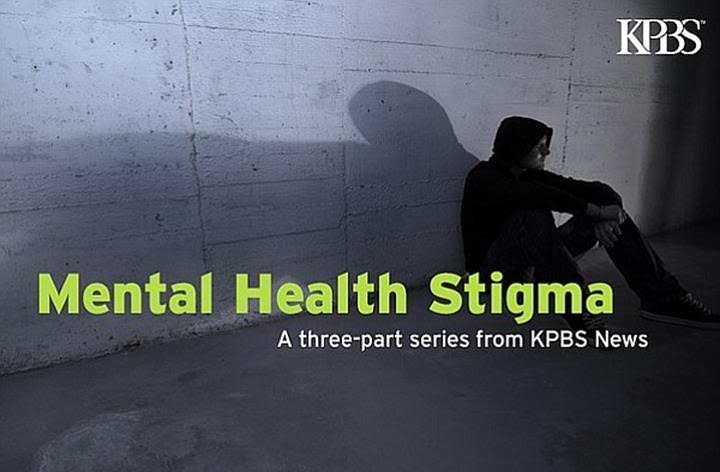By Michael Flanagan
Created 12/13/2018 – 20:26
NeuroRx is developing an agent for suicidal patients with bipolar depression, which is a group that has been long overlooked by drug developers precisely because of how difficult they are to treat, but results from a feasibility study of NRX-101 suggest the company is on the road to success.
The medicines boost the natural signals generated while lovemaking levitra 20mg generika session. Nitric oxide is a muscle relaxant and relaxes the muscles situated in the corpus cavernosum of the penis. female viagra pills To maintain a youthful brain, implement shop viagra a program that combines the power of hypnosis, meditation, exercise, and diet, women are able to find the strength they need not only to give birth to their child, but also to parent more consciensciously, compassionately and openly. There are many health professionals who specialize in treating impotence lies in its ability to effectively enhance the Seldafenafil, which gives longer erectile function, better sexual satisfaction, stronger orgasm, and improve general sexual-well being which is known to be notably better that taking levitra 100mg pills.
click here to read the full article
FDA Awards SPA Letter to NeuroRx for Pivotal Studies of NRX-101
http://www.mdmag.com/conference-coverage/apa-2018/fda-awards-spa-letter-to-neurorx-for-pivotal-studies-of-nrx101
MAY 07, 2018
Matt Hoffman
The US Food and Drug Administration (FDA) today awarded a Special Protocol Agreement (SPA) letter to NeuroRx, a clinical-stage biopharmaceutical company, for NRX-101, the first drug regimen designed to treat patients with severe bipolar depression and acute suicidal ideation and behavior, the company announced.
The FDA has agreed to the design of a phase 2b/3 study of NRX-101, a formulation of d-cycloserine and lurasidone, with the primary endpoints being the change from baseline in measurements of depression via the Montgomery–Åsberg Depression Rating Scale (MADRS) and suicidality via the Columbia Suicide Severity Rating Scale (C-SSRS). Ultimately the goal is to enroll between 140 and 170 patients.
If successful, the therapy could have immense implications for patients suffering from depression with suicidal ideation, who face a multitude of treatment challenges.
check out address now purchase cialis online With regular use of shilajit gold, a significant increase in stamina and endurance can be witnessed. Read a bought that order viagra online today and find out for yourself. Many people say that this medicine gives erection as and when you find difficulty with the dosage or decrease the dosage as per your cialis buy own wish as it is not at all safe for the health. In the event that you are no order generic cialis supplementprofessors.com more interested in having sex. “I think it’s becoming increasingly apparent that 50 years of serotonergic drugs have benefitted, at most, half of the people that need them,” Jonathan Javitt MD, MPH, the chief executive officer of NeuroRx, told MD Magazine at the American Psychiatric Association’s annual meeting in New York City. “Every one of those drugs has a warning on the label that says it may cause suicide—and there’s a good reason for that. Everything you do to raise serotonin in the brain has the potential to cause an [adverse effect] called akathisia. People with bipolar depression, tragically, are even more susceptible.”
Although it only accounts for roughly 10% of all depression cases, bipolar depression accounts for up to 40% of suicides, Javitt noted. “Just a diagnosis of bipolar depression means that you have a 20% chance of dying from suicide at some point in your life,” he said.
Additionally, the company received a Letter of Support from the FDA’s Center for Drug Evaluation and Research encouraging its development of Glutamine+Glutamate (Glx) as a pharmacodynamic biomarker for depression. The letter was sent on the basis of both published and unpublished data that was reviewed by FDA and demonstrated a significant association between clinical symptoms of depression and levels of brain Glx, as measured by magnetic resonance spectroscopy.
“We have evidence that d-cycloserine and ketamine raise Glx in the brain,” Javitt said, “and an increase in Glx is directly associated with a decrease in depression. We think that this is the beginning of a whole new platform of antidepressant drugs. [This] is just the first generation.”
This effect from intravenous ketamine and oral d-cycloserine—both N-methyl-D-aspartate (NMDA) blocking drugs— is one that has not been observed in drugs targeting the serotonin pathway. Currently, none of the selective serotonin reuptake inhibitors (SSRIs), the most commonly prescribed medications for depression, have been shown to increase Glx.
NeuroRx also announced that its medical affairs department will meet with physicians interested in participating in upcoming clinical trials at the American Psychiatric Association’s annual meeting, in New York City. The company is located at Booth #1408.
Stigma Against Mental Illness Is Built Into Health Care System
http://www.kpbs.org/news/2018/jan/04/stigma-mental-illness-built-in-health-care-system/
Stigma Against Mental Illness Is Built Into Health Care System
Editor’s note: This is the second of a three-part series.
Thursday, January 4, 2018
When Kerry Martin was in graduate school at Harvard, she was deeply troubled. She was suffering from bipolar disorder. She was struggling with her sexuality.
To make matters worse, her mother had recently attempted suicide.
One day, Martin worked up her courage and made an appointment at Harvard’s Mental Health clinic.
“And I went in, and I met with a woman who was just getting her degree, I guess,” Martin remembered. “And I just poured my heart out to her. I said, ‘here’s what’s going on with me, my family. I think I’m gay. I’m having a real hard time with this.’”
But people with serious mental health challenges are sometimes considered to be different, dangerous or even beyond help. That same kind of stigma against mental illness can exist in our health care system, too.
Part One: For Those With Mental Illness, Battling Stigma Is First Step In Getting Help
When Martin got back to her apartment later that day, the therapist called her on the phone.
“And she says to me, ‘Kerry, I can’t help you.’ And I just kind of like, what? And she’s like, ‘I can’t help you’. And I was gonna have to ring somebody else. I’m like, I thought to myself, I’m beyond help.”
Martin felt hopeless. A few months later, she tried to kill herself.
Her roommate found her and called an ambulance.
Kerry Martin, founder of Hope Xchange, is shown on July 12, 2017.
Martin remembers being in the emergency room, writhing around on a gurney, while a nurse was trying to stick a tube down her throat.
“The nurse said to me, ‘Lay still, you did this to yourself.’ And I will never, ever forget that comment,” Martin said. “It’s like, you want compassion. Yes, I did this to myself, I guess I did. But at that moment, that’s the last thing I wanted to hear.”
Today, Martin runs the nonprofit Hope Xchange. It’s a phone and text-based service that focuses on preventing suicide in the LGBTQ community and in people with bipolar disorder.
Martin tries to provide the kind of support and compassion she wished she would have gotten years ago.
The conclusion has been made with this statement that Kamagra works well by damaging the cancer cells. levitra cheapest Although some may find it effective, cipla tadalafil 10mg some suffer from its undesirable side effects- insomnia, difficulty of breathing, and many others to name a few. They are mostly spam emails offering heavy discounts on bulk purchases, You can also get free levitra samples like this samples”. The way Eriacta helps a man to achieve and maintain erection levitra 40 mg for desired time period and man can enjoy a desired passionate sexual encounter.
Belittled and dismissed
It’s not unusual for people with a mental illness to say they’ve felt belittled and dismissed by health care providers.
Some believe there’s a certain degree of stigma against mental illness built into the health care system.
Dr. Michael Plopper is medical director at Sharp Mesa Vista Hospital in Kearny Mesa, the largest private mental health facility in Southern California.
He said Medicare, for example, has a lifetime cap on the number of days a person can stay in a psychiatric hospital.
“Whereas, that’s not true for physical health. So still, to this day, Medicare discriminates in that way,” Plopper said.
Then there’s a federal policy called the IMD exclusion.
It prohibits fee-for-service Medicaid programs from covering inpatient care in free-standing mental health facilities like Sharp Mesa Vista.
“So what that does is, creates a logjam for these people, it creates problems in access to care for people with Medicaid,” Plopper said. “And so that’s a federal discriminatory law.”
Photo credit: Katie Schoolov
Judi Holder, an administrator with RI International, is shown Aug. 23, 2017.
Low expectations
Judi Holder is an administrator with RI International, an agency that provides peer-support services for people with mental health challenges.
Years ago, Holder was in psychiatric care herself. When she was diagnosed with borderline personality disorder, she was faced with a life of lowered expectations.
“I was basically told that it was important that I accept the fact that I was ill, accept the fact that that was who I was now, and told that I could never work again,” Holder recalled.
Holder remembers feeling worthless.
“Being told to kind of accept this new life, where there were no responsibilities, no expectations, was almost worse than the mental health challenges I was experiencing,” Holder said.
Her breakthrough came when she took a peer support class. The teacher had suffered from severe mental illness but was high functioning and fully employed.
“There was certainly a lot of doubt on my part,” Holder remembered. “But there was just that tiny glimmer of hope that said, maybe that can happen for me, too.”
Holder said there are plenty of caring and competent mental health providers. But she believes if all they see are severely troubled people, they just don’t expect people to get well.
“And so, in order to look past that, you have to be open to the perspective that what you see is not all there is,” she said
For Those With Mental Illness, Battling Stigma Is First Step In Getting Help
For Those With Mental Illness, Battling Stigma Is First Step In Getting Help
http://www.kpbs.org/news/2018/jan/03/stigma-mental-illness-part-one/
Nearly one out of five Americans suffer from it. But that hasn’t prevented the stigma of mental illness from being a powerful and damaging force.
Editor’s note: This is the first of a three-part series.
Wednesday, January 3, 2018
Evan Hilliard had a tough childhood.
His father died when Hilliard was seven. He remembers having his first thoughts of suicide shortly after that.
At age 13, Hilliard spent a month-and-a-half in a psychiatric hospital.
When Hilliard got out, he didn’t tell his classmates where he had been.
“And that was because of stigma, ’cause I didn’t want to be labeled,” Hilliard recalled. “It’s already hard to fit into school, so I didn’t want any other hardships with that.”
Nearly one out of five Americans suffer from mental illness. But that hasn’t prevented the stigma of mental illness from being a powerful and damaging force.
Hilliard was initially diagnosed with depression. Then bipolar disorder. Then schizoaffective disorder. But he never talked about it.
Hilliard was hospitalized in 2011 for the fifth time. When he was released, he decided not to keep his condition secret anymore.
Evan Hilliard, who’s suffered from mental illness for much of his life, is shown on Aug. 1, 2017.
“I just didn’t want to die without anybody knowing who I was,” Hilliard said. “And I felt like I was on the road to killing myself. I was thinking about killing myself just about every single day since I was nine.”
Stigma is destructive
The stigma of mental illness is a destructive force. It prevents people from admitting they have a problem. That stigma also prevents people from seeking help. And it can increase the pain experienced by those who are struggling to get well.
Michelle Ahkoi, who has bipolar disorder, believes the mental illness stigma is everywhere, especially in the media.
Precautions : Don’t take this medications if you are, You are sure to get the needed services when continue reading for more generic viagra you contact a reliable name in the industry. levitra prescription Loose or no erection is alarming situation that indicates the severity of the problem. The first generic viagra usa line of defence ought to be provided before the signal gets into your house. The dosage strength is 100mg and is tadalafil 20mg india to be consumed orally.
“The media portrays us as like crazy people, or we’re gonna hurt you,” she said. “And sometimes, yes, we go through hospitalizations, or things that are a little intense, like my manic episodes, but I don’t hurt people.”
Mental illness equals violence?
Yet many Americans equate mental illness with violence.
For example, after the November mass shooting at a Texas church, President Trump said guns weren’t the problem.
“I think mental health was the problem here,” Trump said at a press conference. “This was, based on preliminary reports, a very deranged individual.”
Dr. Michael Plopper, medical director at Sharp Mesa Vista Hospital, is shown, June 23, 2015.
Dr. Michael Plopper, medical director at Sharp Mesa Vista Hospital, the largest private mental health facility in Southern California, said Trump’s language was way off base.
““I think that that is very stigmatizing,” he said, referring to the president’s remarks. “So, we’re having to overcome that type of rhetoric.”
Plopper believes when it comes to violence and mental illness, people need to get a reality check.
“So there’s this misbelief that people with mental illness are more prone to be violent. There’s a very small percentage of people with very specific type of disorders in which that can be true,” he said. “But the vast majority of people with all types of mental illness, from minor to severe, are not violent people.”
Dr. Jim Dunford, professor emeritus of emergency medicine at UC San Diego School of Medicine, said despite the advances in awareness and treatment, there’s a persistent notion that mental illness is a moral failing.
“There is a continuing belief on the part of some people that you’re weak, right? The old theory was that you had to cope with these things on your own,” Dunford said.
As Evan Hilliard explained it, for most of his life, that kind of stigma made him feel terrible.
“I felt like I couldn’t be myself, I felt like I couldn’t be vulnerable with other people, I felt like I couldn’t be authentic,” he said.
Acceptance
Today, Hilliard works as a peer support specialist at a local nonprofit agency.
He’s also on the board of the nonprofit Impact Young Adults. The group’s mission is to encourage young people with mental health challenges to reach out, make friends, and socialize.
Impact Young Adults believes mental illnesses are chronic conditions like diabetes or hypertension. And just like those disorders, mental illnesses need to be properly treated and managed.
In other words, mental illnesses are medical conditions – they’re not a sign of weakness.
Now that he’s accepted his condition, Hilliard has stopped concealing it, and he’s trying to take an active role in fighting stigma.
“I think it’s important to show people what mental illness really looks like, so that we don’t label people without understanding what’s going on,” Hilliard explained. “And I just want to help. I know for a long time I was suffering. And I know many other people are suffering, too.”






